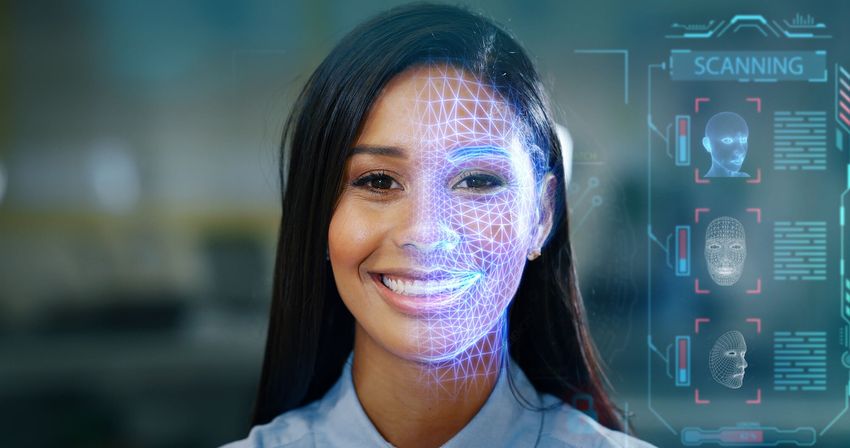Introduction
Lying has been a part of human interaction for centuries, from small white lies to elaborate deceptions. But can artificial intelligence (AI) detect when someone is lying? With advancements in machine learning, facial recognition, and speech analysis, AI is increasingly being used in law enforcement, security, and even hiring processes to spot deception. However, is AI truly capable of detecting lies with accuracy? Let’s dive into the science, technology, and ethical considerations behind AI lie detection.
How Does AI Attempt to Detect Lies? 🤖🔎
AI systems use a combination of data-driven techniques to analyze signs of deception. Here are the key methods:
1. Facial Microexpressions Analysis 🎭
Microexpressions are tiny, involuntary facial movements that occur when people try to suppress emotions. AI, trained with deep learning models, can analyze these subtle changes to identify inconsistencies between verbal and non-verbal communication.
🔹 Example: If someone says, “I’m not nervous,” but their facial expression shows a brief flash of anxiety, AI might flag that as a potential lie.
2. Voice Stress Analysis 🔊
When people lie, their voices often reveal stress through changes in pitch, tone, and speech patterns. AI tools use natural language processing (NLP) and acoustic analysis to detect these anomalies.
🔹 Example: Lie detection AI might recognize pauses, hesitations, or a rise in voice pitch as potential signs of deception.
3. Eye-Tracking Technology 👀
AI-powered cameras can track eye movements to determine if someone is lying. Research suggests that people who are lying tend to have irregular blinking patterns or avoid eye contact.
🔹 Example: A person might look to the side or blink excessively when giving a deceptive answer. AI can analyze these patterns in real time.
4. Text and Speech Analysis 📝🗣️
Advanced AI models like ChatGPT and sentiment analysis tools can analyze speech or written text for inconsistencies. AI can evaluate:
✔️ Contradictory statements
✔️ Overuse of qualifiers like “to be honest”
✔️ Lengthy justifications (liars often over-explain)
🔹 Example: If someone changes details in their story multiple times, AI may flag it as suspicious.
5. Physiological Monitoring (Polygraph 2.0) 📊💓
Traditional polygraphs (lie detector tests) measure physiological responses like heart rate, blood pressure, and sweat levels. AI-enhanced polygraphs analyze these responses with machine learning to improve accuracy.
🔹 Example: A nervous liar may exhibit increased sweating and a faster heart rate, which AI could detect more precisely than traditional methods.
How Accurate Is AI in Detecting Lies? 🎯
AI-based lie detection has potential, but it is not 100% accurate. Here’s why:
✅ Pros:
✔️ AI can analyze vast amounts of data quickly.
✔️ Machine learning improves accuracy over time.
✔️ It removes human bias from the equation.
❌ Cons:
❌ AI can misinterpret natural stress as lying.
❌ Cultural differences in body language can lead to false positives.
❌ Skilled liars can control their expressions and speech patterns.
🔹 Current Accuracy Rates: While some AI lie detection tools claim accuracy above 80%, they are still not reliable enough to replace human judgment completely.
Ethical Concerns of AI Lie Detection 🚨⚖️
Using AI for lie detection raises several ethical concerns:
1. Privacy Violations 🕵️♂️
AI-powered cameras and voice analyzers can track people’s behavior without consent, raising privacy concerns.
2. False Accusations ❌
No lie detection method is foolproof. What if AI wrongly accuses an innocent person? Misinterpretations can lead to serious consequences in criminal cases or job screenings.
3. Bias in AI Models ⚠️
If AI is trained on biased data, it could misinterpret certain speech patterns or cultural behaviors as deceptive.
4. Psychological Pressure 😨
Knowing that AI is analyzing them may make innocent people nervous, leading to false positives.
Where Is AI Lie Detection Being Used? 🌍
Several industries are already experimenting with AI for lie detection:
🔹 Law Enforcement: Police use AI to analyze suspects’ speech and behavior.
🔹 Border Security: AI is being tested to detect deception in visa and immigration interviews.
🔹 Corporate Hiring: Some companies use AI to assess job applicants’ honesty.
🔹 Online Dating & Fraud Detection: AI tools help identify scams and fake profiles.
Will AI Ever Perfect Lie Detection? 🤔
AI is making significant progress in detecting deception, but it is unlikely to fully replace human intuition anytime soon. The human brain is complex, and deception involves multiple factors—emotional, cultural, and psychological. Until AI can understand these nuances as well as humans do, it will remain a tool rather than a definitive judge of truth.
Conclusion: Can AI Truly Detect Lies? 🏁
AI can assist in detecting deception but cannot guarantee accuracy. While it can analyze microexpressions, speech, and physiological signs, human behavior is too complex for AI to perfectly distinguish between truth and lies. AI lie detection should be used with caution and ethical considerations, rather than as an absolute truth-finder.


